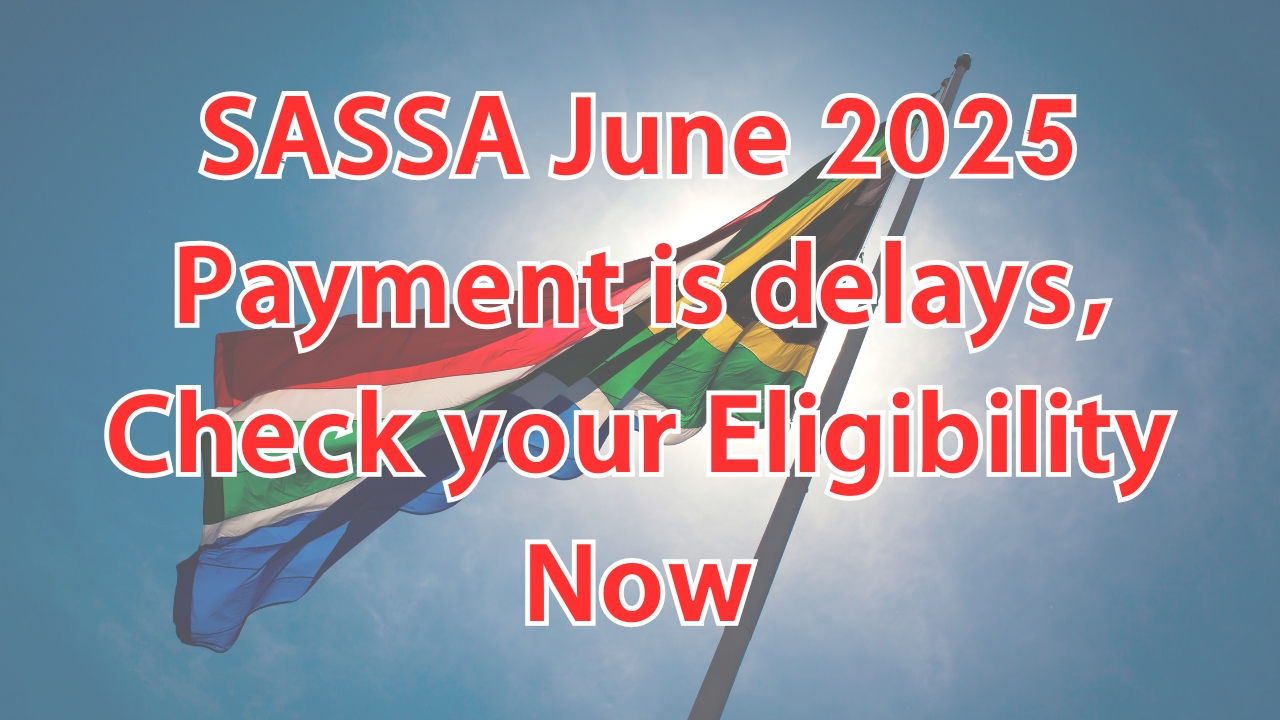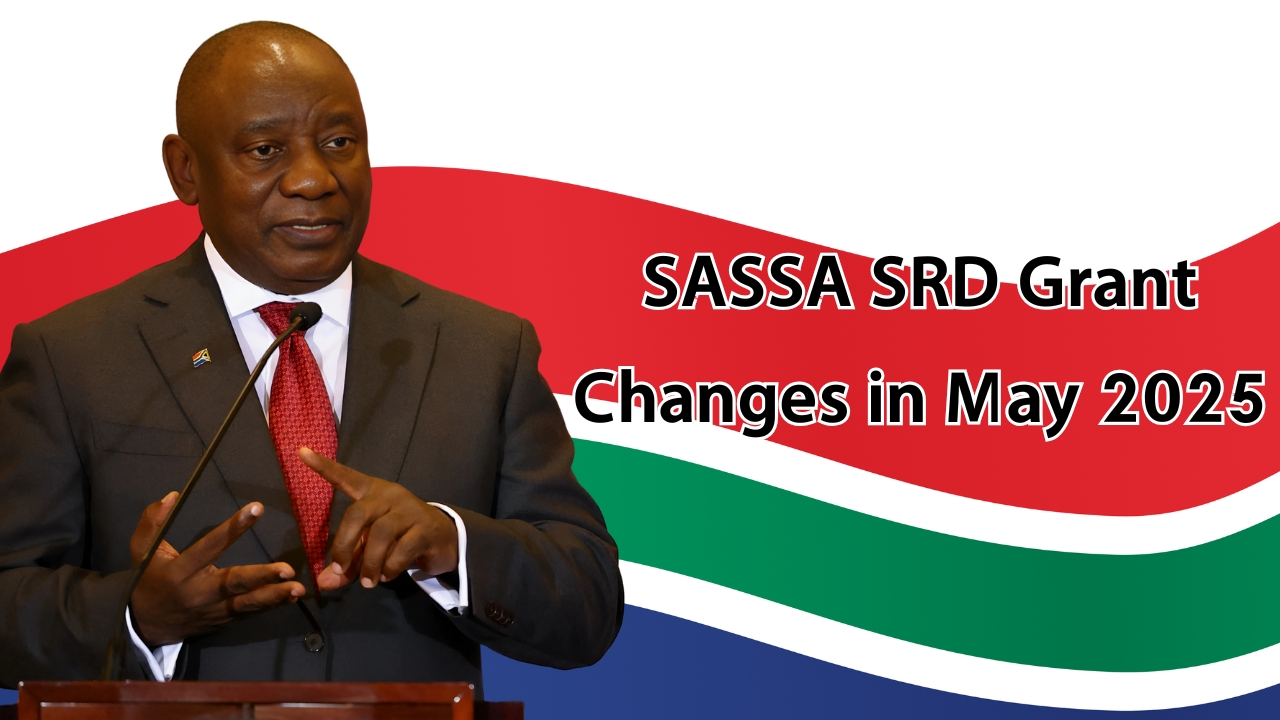The South African Social Security Agency has confirmed significant payment delays affecting over 210,000 grant beneficiaries in June 2025, marking one of the largest administrative disruptions in recent months.
These delays stem from intensified verification processes aimed at addressing potential fraud and ensuring that social grants reach only eligible recipients.
While the majority of SASSA’s 18 million permanent grant beneficiaries will receive payments according to the normal schedule, those affected by the delays face additional challenges as they navigate the verification requirements.
Scope and Scale of the June 2025 Delays
The payment delays affect approximately 210,000 beneficiaries across all grant categories, including Older Persons Grants, Disability Grants, Child Support Grants, and other social assistance programs.
This represents a significant portion of SASSA’s beneficiary base, highlighting the agency’s commitment to maintaining system integrity while creating temporary hardship for affected recipients.
SASSA announced the delays through an official statement on May 27, 2025, providing affected beneficiaries with a 30-day window to present themselves at local SASSA offices for grant reviews.
The agency emphasized that these measures target individuals who appear to be receiving undisclosed income, potentially violating the terms of their grant eligibility.
The delays specifically impact the June payment cycle, which typically runs from June 3-5 for permanent grants.
While the majority of beneficiaries will receive payments on schedule, those flagged for verification must complete the review process before payments can resume, potentially extending delays well beyond the normal payment dates.
Primary Causes Behind the Payment Disruptions
The central issue driving these delays involves beneficiaries who allegedly failed to disclose additional sources of income when applying for grants or after their financial circumstances changed.
SASSA’s collaboration with registered credit bureaus enabled the identification of discrepancies between declared income and actual financial activity, triggering the comprehensive review process.
According to SASSA spokesperson Paseka Letsatsi, the Social Assistance Act legally requires beneficiaries to fully disclose all income sources during initial applications and report any subsequent changes to their financial circumstances.
Failure to comply with these disclosure requirements constitutes a violation that may result in corrective action, including payment suspension or grant cancellation.
The verification process also targets beneficiaries identified through bulk means testing, designed to detect income flowing into undisclosed bank accounts.
This systematic approach reflects SASSA’s increased use of data-matching systems and financial audits to identify potential fraud more efficiently than previous manual verification methods.
Additionally, beneficiaries still using green bar-coded identity books face heightened scrutiny due to increased fraud risks associated with older identification formats.
SASSA has urged these individuals to replace their documents with smart ID cards to reduce vulnerability to identity theft and fraudulent applications.
Impact on Different Grant Categories
The delays affect all major grant categories differently, creating varying levels of disruption across beneficiary groups.
Older Persons Grant recipients, many of whom are elderly and may have difficulty traveling to SASSA offices, face particular challenges in completing verification requirements within the specified timeframe.
Disability Grant beneficiaries may encounter additional obstacles related to mobility limitations or health conditions that complicate office visits.
SASSA has not announced special accommodations for disabled beneficiaries, potentially creating barriers to completing required verification processes.
Child Support Grant recipients face unique pressures as delays directly impact their ability to provide for dependent children.
Parents and caregivers must balance verification requirements with ongoing childcare responsibilities while managing reduced household income during the delay period.
Care Dependency Grant and Foster Child Grant recipients experience similar challenges, as delays affect their capacity to meet the specialized needs of vulnerable children and individuals requiring constant care.
These circumstances create compounding stress for families already managing complex care situations.
Verification Process and Requirements
Affected beneficiaries must present themselves at their nearest SASSA local office within 30 days of the May 27 notification to undergo grant reviews.
The verification process requires current documentation including updated proof of income, valid South African identification, and recent bank statements demonstrating financial activity.
During office visits, beneficiaries must provide comprehensive disclosure of all income sources, including employment earnings, business profits, rental income, financial assistance from family or friends, and any other monetary support.
SASSA officials will cross-reference this information with data obtained from credit bureaus and financial institutions.
The review process also involves updating personal details to ensure accuracy in SASSA’s beneficiary database.
Changes in marital status, residential address, banking information, and dependent circumstances must be properly documented to maintain grant eligibility going forward.
Beneficiaries who fail to present themselves for verification within the specified timeframe risk having their grants suspended immediately.
Continued non-compliance may result in permanent grant cancellation, creating long-term financial consequences that extend far beyond the initial delay period.
Broader Anti-Fraud Initiatives
The June 2025 delays represent part of SASSA’s comprehensive anti-fraud campaign designed to protect the integrity of South Africa’s social security system.
The agency has implemented enhanced data-matching capabilities, improved verification procedures, and strengthened partnerships with financial institutions to detect fraudulent activity more effectively.
SASSA’s zero-tolerance stance on fraud extends to both beneficiaries and staff members involved in fraudulent schemes.
The agency has warned that officials found colluding with beneficiaries to defraud the system face immediate disciplinary action and legal consequences, reflecting heightened internal accountability measures.
Recent arrests of syndicates linked to fraudulent grant applications have prompted SASSA to deploy additional compliance officers and strengthen cooperation with law enforcement agencies.
These efforts aim to address both external fraud attempts and internal corruption that undermines system integrity.
The enhanced verification processes also support broader government objectives related to fiscal responsibility and ensuring that limited public resources reach those with genuine need.
As public scrutiny over grant expenditure intensifies, SASSA’s proactive approach demonstrates commitment to transparent and accountable administration.
Financial Impact on Affected Households
For the 210,000 affected beneficiaries, payment delays create immediate financial hardship that ripples through households and communities.
Many recipients depend entirely on social grants for basic necessities including food, housing, healthcare, and transportation, making even temporary delays potentially devastating.
Older persons facing delays may struggle to afford medications, medical appointments, and essential services required for health maintenance.
Limited financial resources during delay periods can exacerbate existing health conditions and create additional medical expenses that strain household budgets further.
Families receiving Child Support Grants experience particular stress as children’s needs cannot be postponed pending verification completion.
School fees, uniforms, transportation, and nutritional requirements continue regardless of payment delays, forcing families to seek alternative support sources or accumulate debt.
The economic impact extends beyond individual households to affect local businesses and communities that depend on grant recipients as customers.
Reduced spending power during delay periods can affect small retailers, informal traders, and service providers who rely on steady grant-related income streams.
Geographic and Demographic Considerations
Payment delays create varying impacts across different geographic regions, with rural areas potentially facing greater challenges due to limited access to SASSA offices and transportation difficulties.
Beneficiaries in remote locations may need to travel significant distances to complete verification requirements, adding travel costs and time burdens to the process.
Urban beneficiaries may have easier access to SASSA offices but face different challenges related to office congestion and longer waiting times as large numbers of affected individuals seek verification simultaneously.
The 30-day deadline creates pressure on both beneficiaries and SASSA staff to process reviews efficiently.
Elderly beneficiaries across all regions face particular vulnerabilities during delay periods, as many lack alternative support systems or resources to manage temporary income loss.
Limited mobility, health concerns, and technological barriers may complicate their ability to navigate verification requirements effectively.
Language barriers and limited literacy can create additional obstacles for beneficiaries attempting to understand verification requirements and complete necessary documentation.
SASSA’s communication strategies must account for diverse linguistic and educational backgrounds among affected populations.
Recovery and Resolution Pathways
Beneficiaries who successfully complete verification processes can expect payment resumption, potentially including retroactive payments covering the delay period.
However, SASSA has not provided specific timelines for payment restoration following successful verification completion.
Those who discover discrepancies in their records during verification may need additional time to resolve documentation issues or address legitimate changes in circumstances that affect eligibility.
Complex cases involving multiple income sources or changing household compositions may require extended review periods.
Beneficiaries who face grant suspension or cancellation following verification retain appeal rights through established SASSA procedures.
However, appeal processes can extend delays significantly, creating prolonged financial hardship for households disputing adverse decisions.
SASSA June 2025 Payment is delays
The June 2025 delays signal SASSA’s transition toward more stringent ongoing monitoring of beneficiary eligibility rather than relying primarily on initial application screening.
This shift reflects lessons learned from previous fraud detection efforts and advances in data-matching technology capabilities.
Enhanced verification procedures may become standard practice for SASSA operations, requiring beneficiaries to maintain more detailed financial documentation and respond more quickly to verification requests.
These changes aim to balance fraud prevention with administrative efficiency while minimizing disruption to legitimate recipients.
The agency’s intensified focus on compliance ahead of financial year-end reviews suggests that similar verification initiatives may occur regularly, requiring beneficiaries to adapt to more frequent monitoring and documentation requirements.
Future developments may include improved digital verification systems, enhanced online services for updating beneficiary information, and streamlined processes that reduce the need for in-person office visits while maintaining security and fraud prevention capabilities.
Understanding these delays and their underlying causes helps beneficiaries navigate current challenges while preparing for evolving requirements that reflect SASSA’s commitment to maintaining a sustainable and trustworthy social security system for all South Africans who genuinely qualify for support.














